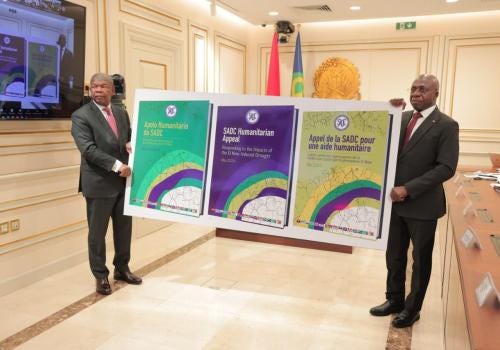SADC Leaders Launch $5.5 Billion Appeal for Drought, Flood Relief
The 16-nation SADC bloc appointed Lourenço last August amid escalating regional instability from insurgencies, coups and weather disasters exacerbated by climate change.
LUANDA, Angola— Southern African leaders launched a $5.5 billion humanitarian appeal Monday to assist over 61 million people affected by drought and flooding linked to an El Niño weather phenomenon, writes Winston Mwale.
The funding drive approved at an emergency virtual summit aims to augment domestic resources in impacted nations and mobilize further aid from international partners.
An addendum reflecting revised needs will be issued in August after some countries complete impact assessments, the Southern African Development Community said in a communique.
SADC also urged proactive steps to brace for potential La Niña conditions in 2024-2025.
"Summit noted the multifaceted and cascading impact of the El Niño induced drought and floods across multiple sectors...and called for coordinated, integrated, and harmonised interventions," the statement said.
Several U.N. agencies and aid groups including the World Food Program, Food and Agriculture Organization and the International Federation of Red Cross pledged initial funding.
But with over 61 million people impacted across the region, SADC said much more support is urgently needed from the international community.
The summit was chaired virtually by Angolan President João Lourenço, the SADC chairman. He welcomed new Namibian President Nangolo Mbumba while mourning late Namibian leader Hage Geingob.
Leaders also condemned an attempted coup on Sunday in the Democratic Republic of Congo, reaffirming opposition to unconstitutional power transfers and expressing solidarity with Congo's government.
The 16-nation SADC bloc appointed Lourenço last August amid escalating regional instability from insurgencies, coups and weather disasters exacerbated by climate change.
At the time, he warned that failure to address these mounting crises could fuel displacement, hunger and recruitment by extremist groups.




